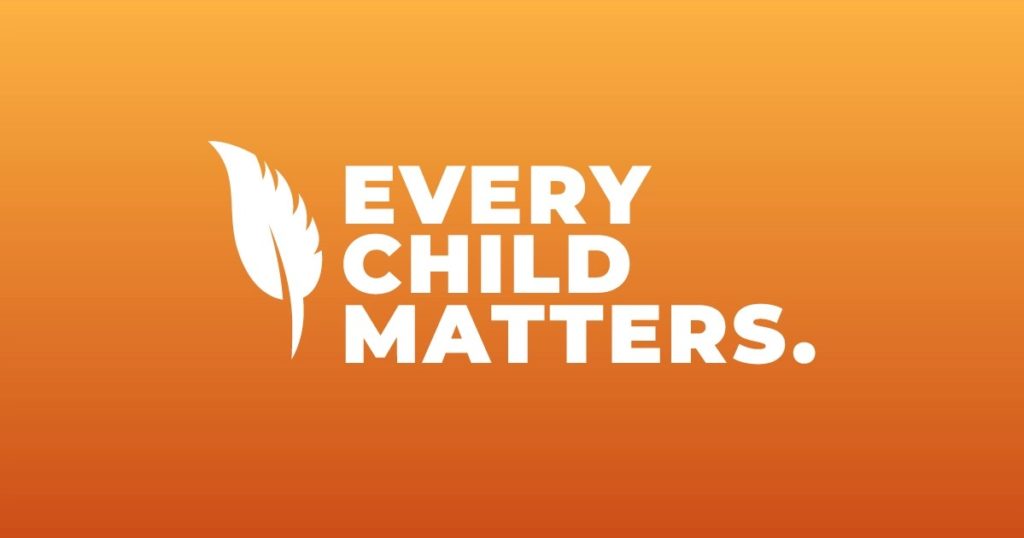30 September, 2022

The first five recommendations of the Truth and Reconciliation Commission of Canada’s Call To Action address issues of child welfare. They include calling on all levels of government to implement preventative measures to address the overrepresentation of Indigenous children across Canada in the child welfare system. The following are those first five recommendations:
Child welfare
1. We call upon the federal, provincial, territorial, and Aboriginal governments to commit to reducing the number of Aboriginal children in care by:
i. Monitoring and assessing neglect investigations.
ii. Providing adequate resources to enable Aboriginal communities and child-welfare organizations to keep Aboriginal families together where it is safe to do so, and to keep children in culturally appropriate environments, regardless of where they reside.
iii. Ensuring that social workers and others who conduct child-welfare investigations are properly educated and trained about the history and impacts of residential schools. iv. Ensuring that social workers and others who conduct child-welfare investigations are properly educated and trained about the potential for Aboriginal communities and families to provide more appropriate solutions to family healing.
v. Requiring that all child-welfare decision makers consider the impact of the residential school experience on children and their caregivers.
2. We call upon the federal government, in collaboration with the provinces and territories, to prepare and publish annual reports on the number of Aboriginal children (First Nations, Inuit, and Métis) who are in care, compared with non-Aboriginal children, as well as the reasons for apprehension, the total spending on preventive and care services by child-welfare agencies, and the effectiveness of various interventions.
3. We call upon all levels of government to fully implement Jordan’s Principle.
4. We call upon the federal government to enact Aboriginal child-welfare legislation that establishes national standards for Aboriginal child apprehension and custody cases and includes principles that:
- Affirm the right of Aboriginal governments to establish and maintain their own child-welfare agencies.
- Require all child-welfare agencies and courts to take the residential school legacy into account in their decision making.
- Establish, as an important priority, a requirement that placements of Aboriginal children into temporary and permanent care be culturally appropriate.
5. We call upon the federal, provincial, territorial, and Aboriginal governments to develop culturally appropriate parenting programs for Aboriginal families.
In 2017, the Ontario government revamped the child protection legislation, which included expansion of definition of Indigenous children and emphasis on commitment to their rights. In 2019, the Federal government enacted An Act respecting First Nations, Inuit and Métis children, youth and families (“The Federal Act”). This legislation again places high emphasis on preventative measures to keep children with their families of origin.
Section 14 of the Federal Act places emphasis on the prioritization of preventative care:
14 (1) In the context of providing child and family services in relation to an Indigenous child, to the extent that providing a service that promotes preventive care to support the child’s family is consistent with the best interests of the child, the provision of that service is to be given priority over other services.
The Call to Action was published in 2015. It is seven years later, and incremental steps in the right direction have been made, however the overrepresentation of Indigenous children in the child welfare system remains endemic. Across Canada, over 50% of the children in foster care are Indigenous, while only accounting for under 8% of the child population. The number has actually gone up since the Call to Action was published (In 2016, the Canadian Census data reported 52.2% and in 2021 53.8%).
All too often we speak about residential schools, the Sixties Scoop, and the oppression and assimilation of Indigenous people on this land as a historic issue. These numbers confirm it is a present day issue.
As a child protection lawyer on the front lines, I ask that those engaged in service-providing roles for families effected take today to reflect on how we can better implement these preventative measures. We need to do more than just pay lip service to reconciliation and start the reparative work.
Bayly Guslits is an associate with the Family Law Practice Group at Harrison Pensa. She represents clients in all matters related to Children’s Aid Society, separation or divorce, custody, access, and child and spousal support.





